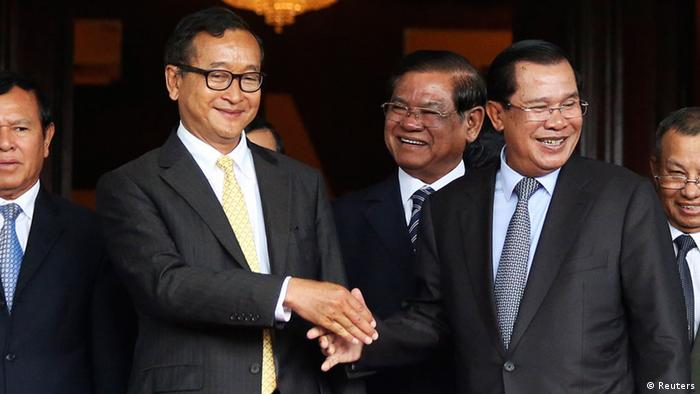The genesis of the culture of dialogue was the close-run 2013 general election when Hun Sen’s ruling Cambodian People’s Party (CPP) came within a few hundred thousand votes (in an electorate of nearly 10 million) of losing the popular ballot to Rainsy’s CNRP.
With a youthful population tired of the cronyism, poor services and lack of opportunities available to them under a CPP government – and unreceptive to the ruling party’s mantra that it brought peace to Cambodia by defeating the Khmer Rouge – the trend was towards change.
The opposition is banking on that continuing and, with two-thirds of the population under 35, is confident of its chances in 2018. The CPP is understandably fearful, and has begun improving education (whose budget in 2016 will, at nearly $500 million, be double its 2013 level) while at the same time, perhaps ominously, shoring up the amount allocated to defense and the police (up nearly two-thirds over the same period to a combined $650 million).
Cambodia – Fractured politics and a culture of monologue
Op-Ed: DW
Over a year after Cambodia’s two main parties agreed on a “culture of dialogue,” the deal looks to have unraveled, with the PM warning only his re-election would keep the nation from civil war. Robert Carmichael reports.
The July 2014 agreement between Prime Minister Hun Sen and opposition leader Sam Rainsy was born of a close-run general election the previous year and a subsequent deadlocked, and at times bloody, political process that saw the opposition refuse to take the 55 seats they had won until allegations about electoral fraud were addressed.
But eventually, after months of opposition-led protests and increasingly violent suppression by the authorities, the two sides came to an arrangement. Under its terms, Hun Sen and Rainsy agreed to discuss key issues, while party worthies would resolve lesser disputes.

